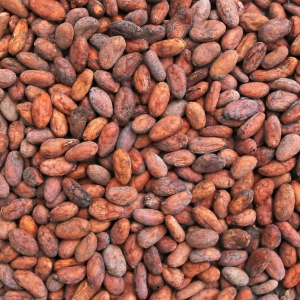


(Posted on 10/06/19)
Cargill’s 2017/2018 Cargill Cocoa & Chocolate Sustainability Report highlights the work being done every day to improve the lives of farmers and their communities in five origin countries where the company sources cocoa—Brazil, Cameroon, Côte d’Ivoire, Ghana, Indonesia.
“This sustainability report highlights how we are taking action on a range of issues across the cocoa sector, while maintaining a farmer-first approach. It is vital that everything we do creates lasting benefits for cocoa farmers, their families and communities, and empowers them to own their futures and achieve success as small businesses while protecting our planet,” said Harold Poelma, president of Cargill’s cocoa & chocolate business.
The company is focused on achieving a more transparent supply chain and implementing scalable solutions through technology and evidence-based approaches. Recent actions have focused on building the capacity of local farmers, improving traceability in the supply chain, increasing access to training and educational resources for cocoa households, professionalizing farming and protecting natural resources.
Key milestones over the past year include:
Providing Good Agricultural Practices (GAPs) training and coaching to over 200,000 cocoa farmers worldwide. In Côte d’Ivoire, Cargill has seen GAP adoption rates double (from 14% to 28%), with farmers able to boost their productivity and manage their farms more sustainably.
GPS polygon mapping of more than 110,000 farmers and the assessment of 188,065 hectares of forest within Cargill’s direct cocoa supply chain (in partnership with Global Forest Watch). This work establishes a baseline identifying where the cocoa comes from, which areas may be at risk of deforestation and how to mitigate this risk through specific interventions.
Completed full needs assessments in 137 new communities in Côte d’Ivoire and Ghana. As a result, these communities are currently developing Community Action Plans (CAPs), which enable their leaders to evaluate local needs, identify available resources or areas for development, and define their path forward.
Technology plays a vital role in informing and accelerating Cargill’s impact in cocoa sourcing regions. Using digital payments, farmers are able to receive secure, timely payment for their beans, while Cargill’s digital Cooperative Management System ensures that farmers and farmer organizations are empowered to manage their operations like businesses.
The integration of technology across the supply chain also drives greater trust and transparency from cocoa bean to chocolate bar. Data from the deployment of GPS polygon mapping and electronic bean tracking solutions inform how Cargill designs and deploys its sustainability programs, in turn helping customers deliver on consumer demands for ethically sourced products.
This year’s report reflects Cargill’s comprehensive approach to sustainability, which considers multiple distinct yet interconnected issues and encourages collaboration between stakeholders to achieve a thriving cocoa sector. The report highlights progress made on the company’s five Sustainability Goals, aligned to the UN Sustainability Development Goals and adopted by Cargill Cocoa & Chocolate in 2017. These sustainability goals are part of the Cargill Cocoa Promise: the company’s corporate commitment to improving the lives of cocoa farmers and their communities.
“It is our belief that the journey towards sustainable business practices is far greater than the actions or interests of any one company. By partnering up with other organizations and playing to our individual strengths we can achieve fundamental and lasting transformation, together,” added Mr Poelma.
Cargill’s 155,000 employees across 70 countries work relentlessly to achieve our purpose of nourishing the world in a safe, responsible and sustainable way. Every day, we connect farmers with markets, customers with ingredients, and people and animals with the food they need to thrive.
Trafigura Group Pte Ltd, a global leader in the commodities industry, has announced its financial results... Read more
Rio Tinto has successfully produced the first copper from the Johnson Camp mine in Arizona using its... Read more
The American Soybean Association’s World Initiative for Soy in Human Health programme and the... Read more
Karlka Nyiyaparli Aboriginal Corporation (KNAC) Registered Native Title Body Corporate and Rio Tinto... Read more
OCI Global, a leading global producer and distributor of nitrogen products has announced that it has... Read more
In December 2024, SSAB was granted a permit by the Land and Environment Court at Umeå District... Read more
The President of the Republic of Guinea has joined project partners WCS1, Baowu, Chinalco and Rio Tinto... Read more
GSC (Global Strategic Commodities) has announced the launch of its dedicated mining advisory division... Read more
SSAB AB has successfully issued its inaugural green bonds under its EUR 2 billion EMTN programme, dated... Read more
On 9 September 2025, Anglo American plc and Teck Resources Limited announced that they had reached an... Read more